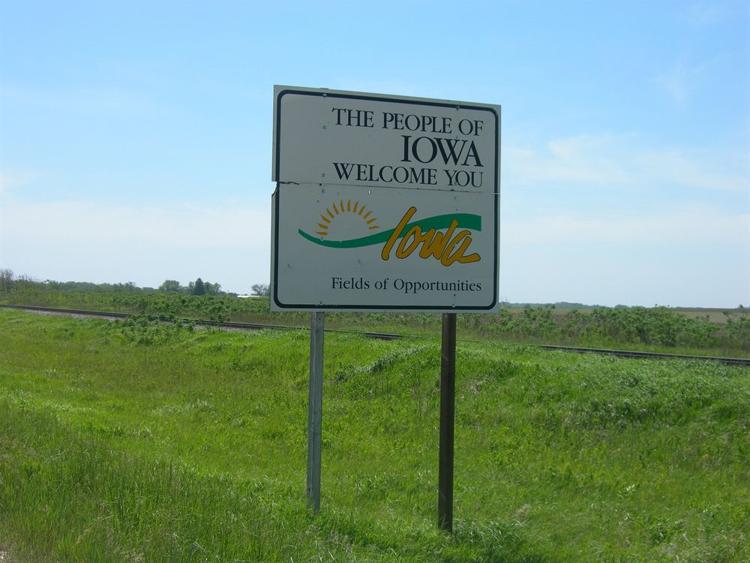Short memory and low expectations
Perhaps we are sufficiently far in time from two realities that state legislatures are again moving quickly on AVs.
1. Mar. 18, 2018 - the date of the Uber not-really-an-AV crash in Arizona; andAt the moment, states perceive themselves to be in the driver's seat in pushing AVs forward. The new laws uniformly assert state supremacy, preempting local regulation or restrictions on AV operations.
2. Congress failed to pass a national AV law in the last session.
One trend is a change in legislative definitions is that the term "automated driving systems" has become common and has generally replaced the term "autonomous vehicles." It has also become commonplace to require that AVs be able, among other things, to achieve a "minimal risk condition." The Florida, Iowa. and Oklahoma laws include these.
Florida
Florida HB 311
Whole hog - "human operator is not required to operate a fully autonomous vehicle; authorizing a fully autonomous vehicle to operate in this state regardless of whether a human operator is physically present in the vehicle"
No human need be present when AV is in operation
Allows teleoperation of AV
Allowing operation of an AV with video or television entertainment
Allowing operation of an AV with wireless devices in use
Definitions edited from earlier AV law
Preempts local governments from in any way regulating AV ridehailing (with some exception for airport authorities)
A provision that governs partial automation technology looks like fodder for litigation:
If the autonomous vehicle is not fully autonomous, the vehicle must: (a) have a system to safely alert a licensed human operator physically present in the vehicle if an automated driving system failure is detected while the automated driving system is engaged. When an alert is given, the system must: require the licensed human operator to take control of the autonomous vehicle or must achieve a minimal risk condition.Vague language allowing the Florida Turnpike Enterprise to "fund, construct, and operate facilities" that "advance" AV transportation for the purpose of reducing congestion AND improving safety. Note to Florida Turnpike Enterprise: The safest modes to integrate into your AV infrastructure are walking, biking, and transit.
Addresses long-range MPO transportation plans and mandates that "Each M.P.O. is encouraged to consider strategies that integrate transportation and land use planning to provide for sustainable development and reduce greenhouse gas emissions."
Oklahoma
Oklahoma SB 365
- Preempts municipalities
- Defines terms
- Creates new section of vehicle law
Nothing in the Oklahoma law specifically discusses AV operation on public roads.
Iowa
Iowa SF 302
Allows for AVs to operate on public roads, but a human driver must be present in the vehicle. In fact, in the Iowa framework, it is still the human driver who is responsible, meaning the party who is potentially liable. Nothing about the possible liability of software providers or of hardware or vehicle manufacturers.
Local governments are preempted from regulating or taxing AVs, AV operations, or the business of AV ridehailing.
The Iowa law provides for AV ridehailing, but it does not explicitly permit an AV to operate without a human driver present. This leads one to believe that the law means that a human driver must be present when a ridehailing passenger is picked up or when a delivery is made with an AV.
Louisiana legislation pending
Louisiana HB 455 - This legislation is pending in the Louisiana Senate. It only concerns AV commercial motor vehicles and probably is geared toward attracting the trucking industry testing going on down South. [Update on July 9, 2019: The Louisiana bill passed and has become law.
Defines AV terms
Autonomous commercial motor vehicles - meaning trucks and buses - may operate in Louisiana
"Prior to commencing the operation of an autonomous commercial motor vehicle without a conventional driver present in the cab, a person or entity shall submit a written statement to the Department of Transportation and Development certifying that the vehicle meets the requirements of this Section."
Allows for teleoperation of automated commercial vehicle, but a human remote operator is considered the operator during such periods of operation.
If an AV commercial vehicle is equipped with teleoperation capability, it may operate on public roads without a human present, but only if "if a remote driver is operating the vehicle."
I'm confused, is the intention that the vehicle be automated or only partially automated. Is this really a commercial vehicle teleoperation bill? Is this a platooning bill, though that term or a description of such activity is left unmentioned?
